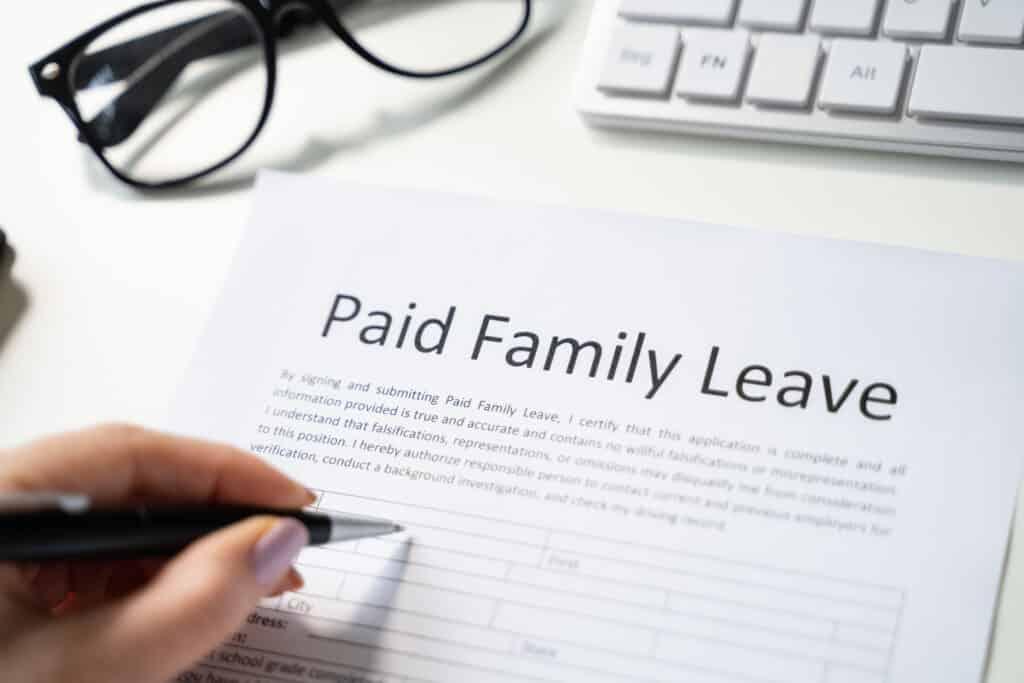Mental health is becoming a greater concern than it was in the past because employers are realizing that an employee with an untreated mental health condition is likely not doing the best work they would otherwise be able to when healthy. Studies are showing that mental health conditions are becoming more frequent as the stressors of daily life continue to intensify.
New updates to the Family Medical Leave Act have made it easier for those who are dealing with mental health conditions to take a job-protected mental health leave in order to care for themselves or a family member with mental illness. Let’s take a look at what family and medical leave for a mental health condition entail and how mental health concerns no longer need to have you worrying about losing your job.
What is FMLA?
The Family Medical Leave Act (FMLA) is a federal law that allows workers to take unpaid time off work for a serious health condition. This law also allows eligible employees to take family and medical leave in order to to get inpatient treatment or outpatient rehabilitation treatment for a health condition without risking the loss of their current job, as long as they work with an eligible employer and meet certain requirements. Before this law, those with a serious health condition, or who had a family member with serious health conditions or physical health conditions requiring care risked losing their job.
Originally, the Family Medical Leave Act only covered physical health conditions. However, recent updates recognize mental health conditions as serious, but treatable, conditions that may require time off of work. If you or a family member require ongoing medical treatment, you are protected as long as you meet certain conditions. Let’s look at what the law says is required if you are qualified to take this leave.
What Does the Medical Leave Act Provide?
The Family Medical Leave Act provides an opportunity for eligible employees to take an unpaid absence from work to attend to health conditions that prevent them from working. These health conditions can be personal or experienced by certain family members who qualify.
The employer must provide a total of 12 work weeks a year, although they do not need to be consecutive if an employee has health conditions that require ongoing outpatient treatment such as medical or mental health appointments. During that leave, the employee is guaranteed that their position, or one comparable to it, will be there when they return. They are also guaranteed continuing coverage by employee health insurance. This coverage also includes ongoing medical or mental health conditions that may make the employee occasionally unable to work, such as mental health conditions like major depression.
FMLA leave may be paid through state disability, assuming certain criteria are met.
Do All Companies Have to Comply With the Medical Leave Act?
All public employers, including government organizations and schools, must comply with the FMLA. Private employers who employ over fifty employees for at least twenty weeks of the year must also comply with this law. Smaller employers may offer similar benefits through different state and federal regulations. In fact, even if they are not able to provide leave for mental health, many smaller employers will try to offer alternative solutions because they realize that mental health issues affect the entire workplace and not just the individual who is struggling. They also realize that when a family member is experiencing a major health condition, that can seriously affect an employee’s mental health condition and performance.
Who Are Eligible Employees?
Eligible employees are those who work for the above-mentioned employers that are required to comply with the Family Medical Leave Act. They must also meet certain other requirements.
- They must have a serious health condition, either physical or mental, that makes it necessary to take time off work. The severity of the condition is determined by a doctor.
- A qualified family member must have the need for care because of a serious physical or mental health condition.
- The employee may be required to verify the need by providing medical certification to the employer by a licensed medical or mental health care provider.
What Mental Health Conditions are Included?
Any mental health issues that are verified by a licensed professional can be included as eligible mental health conditions. This includes, but is not limited to:
- Severe stress
- Bipolar disorder
- Depression
- Severe anxiety
- Trauma/Post-traumatic stress disorder
- Schizophrenia
- Disassociative disorders
- Drug or alcohol rehabilitation
- Eating disorders
Who is a Qualifying Family Member?
Family members normally consist of a spouse, children under 18, or parents. However, an adult child can qualify if they meet the qualifications of a disability as determined by the American Disabilities Act.
How the American Disabilities Act Defines the Term Disability
The ADA defines a disability as any medical or mental health condition that seriously impairs major life activities. This is often determined by the individual needing to stay overnight or longer in a hospital or inpatient treatment facility.
Military Caregiver Leave
The Family Medical Leave Act offers a bit more protection for military caregivers. These individuals are able to take up to 26 weeks to care for active-duty military members or veterans who have mental health conditions related to their service. This includes both those acquired while on active duty and those that appear after an honorable discharge. Often, a physical disability or another serious health condition can lead to mental health issues later, once the military member has returned home and tries to reintegrate into civilian life.
Is Post-Traumatic Stress Disorder Considered an Eligible Mental Health Condition?
Post-traumatic stress disorder (PTSD) is one of the most common mental health conditions faced by those who leave the military. Another is major depression. Both conditions are covered by the FMLA.
Can My Employer Fire Me?
One thing that stops many people from asking for time off due to mental health conditions is their fear that an employer will use mental illness as an excuse to fire them if it is bad enough to cause an absence. They don’t make counseling appointments or enter a much-needed rehabilitation program because they are afraid of losing their income. The Family Medical Leave Act eliminates this fear. An employer is forbidden from firing an employee who seeks time for mental health concerns. In fact, this law guarantees that you will be able to return to your current position when you are ready to return or that you will be placed in a position that is comparable to your current one.
What are My Privacy Rights?
Another fear that often stands in the way of getting needed mental health care is the idea that everyone at your workplace will know. This is another protection that is offered by the FMLA. Any medical records or certifications you provide to your employer when asking for mental health leave need to be kept separate from your regular work folder. In addition, is only to reveal as much information as is absolutely necessary to supervisors. If your privacy rights are compromised, you have grounds for legal action.
Are There Alternatives to FMLA for Mental Health Conditions
What happens if you work for a private company that doesn’t fall under the guidelines of having to offer you leave for mental health issues? Because most employers are aware of how important your mental health is to do your best work, many offer you alternatives.
Vacation Time
It is possible that you can use your vacation time as well as any accumulated personal hours for treatment. While there are often requirements about reserving these days in advance, many employers will work with you so you can get the break you need without losing pay or risking your job.
Employee Assistance Programs
More and more companies are offering programs that give free or reduced-cost options for mental health counseling. They may include talk therapy and even time in an inpatient rehabilitation center if needed. Don’t be afraid to speak up and ask.
Unprotected Leave
If all else fails, you can explain what is going on and simply ask for a leave of absence. Your position won’t be protected, but sometimes it’s necessary.
Applying For a Mental Health Leave
If you are struggling with mental health issues or you have a family member who is dealing with a disabilities act approved mental health condition, reach out to Clear Behavioral Health to get advice on getting help or explaining what your rights are for getting unpaid leave.





